Begin
01
Small Group
02
SP
03
Learning
04
Clinical Skills
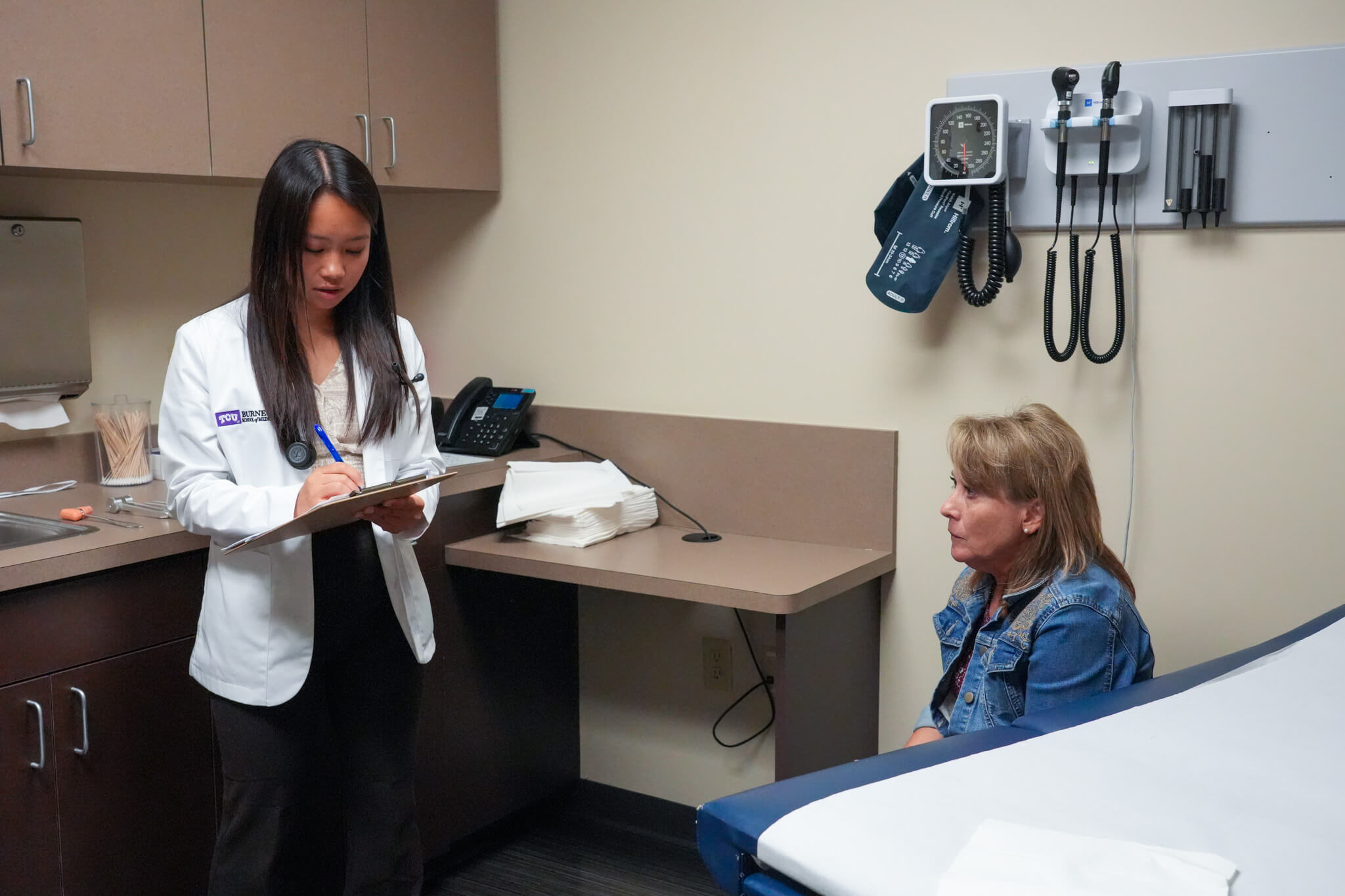
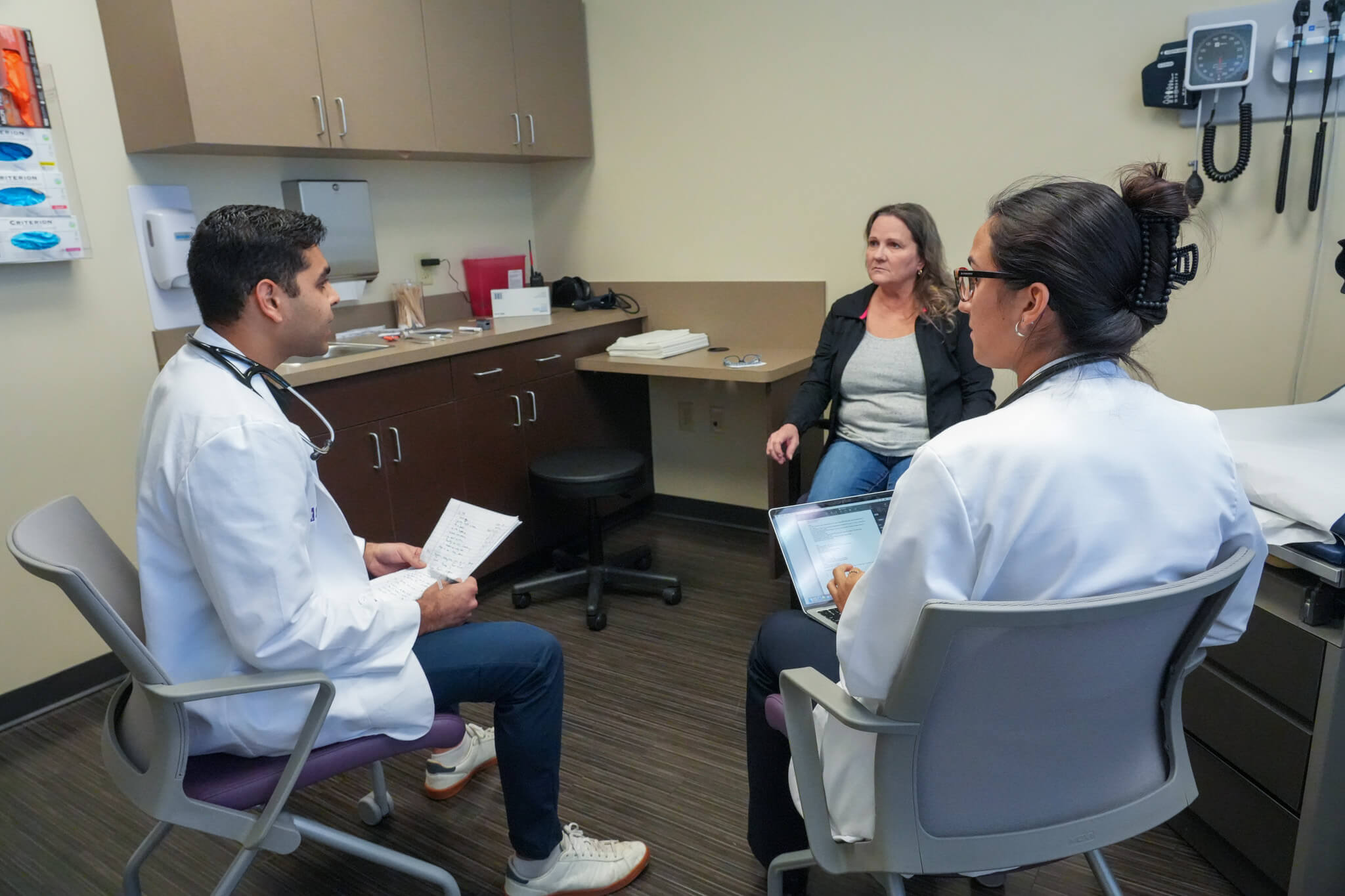
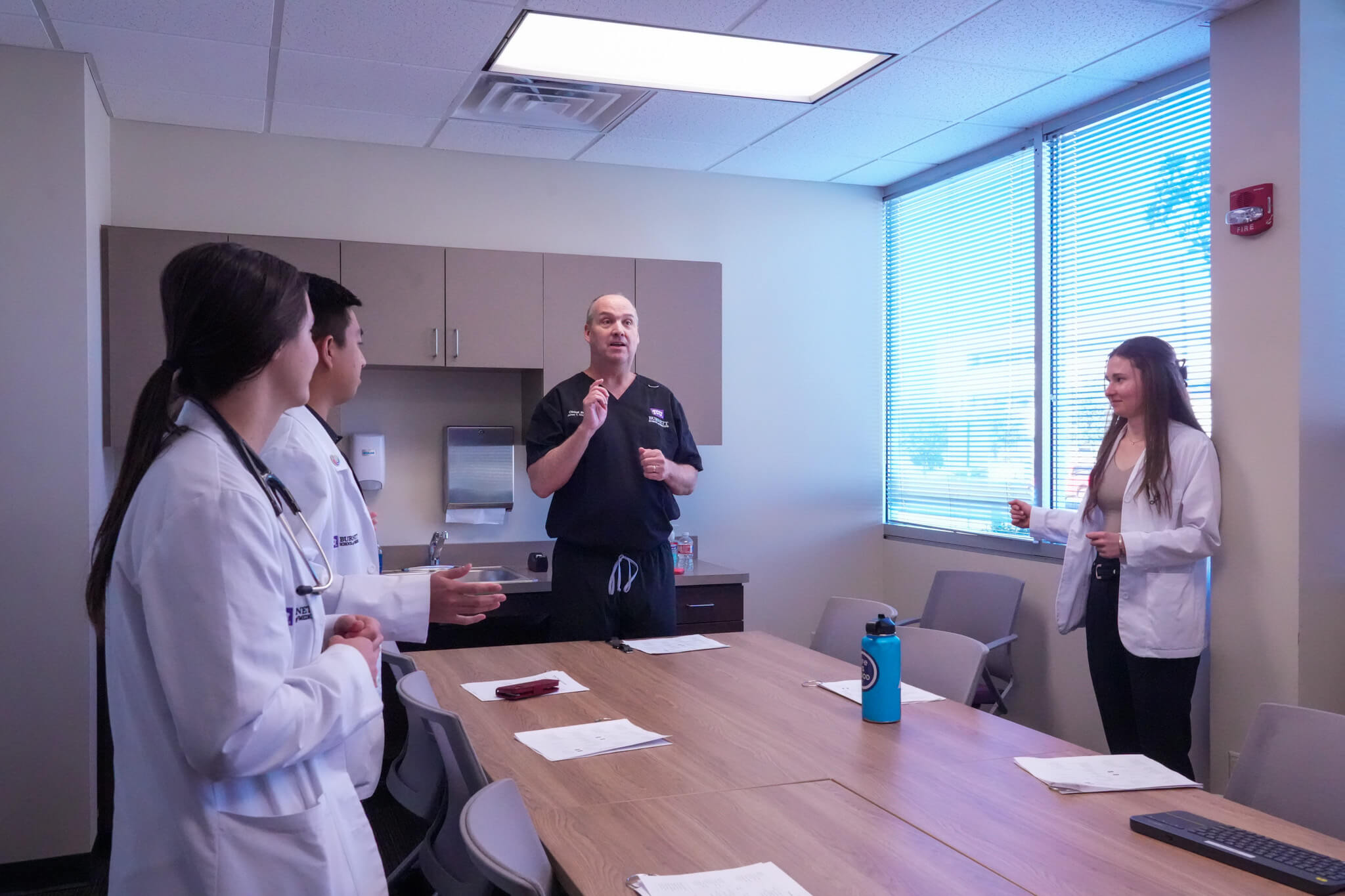
Small Group Learning
At the Anne Marion Burnett School of Medicine at Texas Christian University communication, history taking skills, and physical exam skills are immediately incorporated into the curriculum. By doing this, we are better preparing our students to be immersed into clinical settings. A typical Clinical Skills session consists of multiple small group activities with an average student to faculty ratio of 3:1. Because of this, individualized feedback is given during the session and faculty are available outside of the session.
Standardized Patient (SP) Program
About Our Standardized Patient Program
About Our Standardized Patient Program
Standardized Patients (SPs) are individuals who have been trained to accurately and consistently portray the roles of patients, family members or others to allow medical students to practice history taking skills, communication skills, physical exam skills and other exercises during simulated office visits.
During teaching or assessment activities SPs are interviewed, counseled, and physically examined by students as part of the learning environment. Additionally, SPs participate in student debrief sessions after encounters and are trained to provide verbal and written feedback from the patient perspective. Ultimately, SPs are instrumental in providing students with hands-on practice in a safe learning environment that is fair, supportive, and appropriate to the student learning objectives.
Joining our SP Team
Joining our SP Team
Who can be an SP?
Anyone! No acting experience, previous experience as an SP, or medical knowledge is required to apply.
We look for the following qualities in our applicants:
- Flexible work schedule
- Comfort performing a role; simulating symptoms, emotional states, and personality traits
- Willingness and ability to undergo common physical exam procedures
- Strong observation skills and memory
- Comfort giving constructive feedback
- Strong written and verbal communication skills
- Professional, adaptable, and non-judgmental attitude
- Interest in making a difference in the future of health care
How are SPs Trained?
Thorough training is provided prior to all encounters. SPs are given case materials that outline a complete patient history (present complaint, past medical history, lifestyle, etc.) and are trained to portray that patient in an accurate, consistent manner. Most training sessions are 2-3 hours long and include review of case material, role-play with trainer and fellow SPs, and practice recording data and giving feedback.
You will be shown how to react and respond to student questions and examinations. For example, if a case involved a complaint of knee pain, you would be told where the pain is, how severe it is, and how it would feel during different examination maneuvers. Before encountering students, SPs are required to successfully present or demonstrate their role for an SP educator/trainer.
Is SP work safe?
Yes. The examinations are very basic and should not cause any harm to SPs. All encounters are recorded and observed by faculty and staff via video monitors as they happen, which contributes to the safety of the SPs. SPs are also always allowed to refuse roles that might be emotionally or physically taxing for them.
Where and when do SPs work?
Most events take place at 1651 West Rosedale Street, Fort Worth 76104 (the SOM’s temporary home base for Clinical Skills) during regular weekday business hours. The bulk of our events take place on Tuesday and Wednesday afternoons from 12:00 – 5:00 PM.
We schedule simulations to meet our program needs, which vary depending on specific case requirements. SPs are matched with cases using criteria such as age, gender, etc.
Being an SP is an intermittent, part-time position. Hours vary based on program needs.
How much as SPs paid?
SPs are paid $25 per hour for training and participation in events.
How can I apply?
The Burnett School of Medicine holds interviews for prospective SPs on an as-needed basis.
In order to be considered, you must apply to our posting on TCU’s website and complete an SP Intake Survey. Check for the open Intake Survey (https://mdschool.tcu.edu/jobs)
You can email our SP Educator at clare.shaffer@tcu.edu with any questions you might have about the application process.
Applicants of all backgrounds and identities are encouraged to apply.

Hands-on Learning
Communication and Interpersonal Skills
Communication and Interpersonal Skills
Patient interviewing and empathetic communication skills.
Students are taught how to communicate effectively with patients and how to obtain a complete history in a thorough and empathetic manner. Skills are reinforced by practice with standardized patients who are trained to portray different roles. Additionally, students are paired with experienced clinicians to work through actual patient encounters that they may see in their future practice or clinical settings. Students receive feedback to improve interpersonal skills from both faculty and standardized patients, giving them tangible ways to better communicate empathetically with patients.
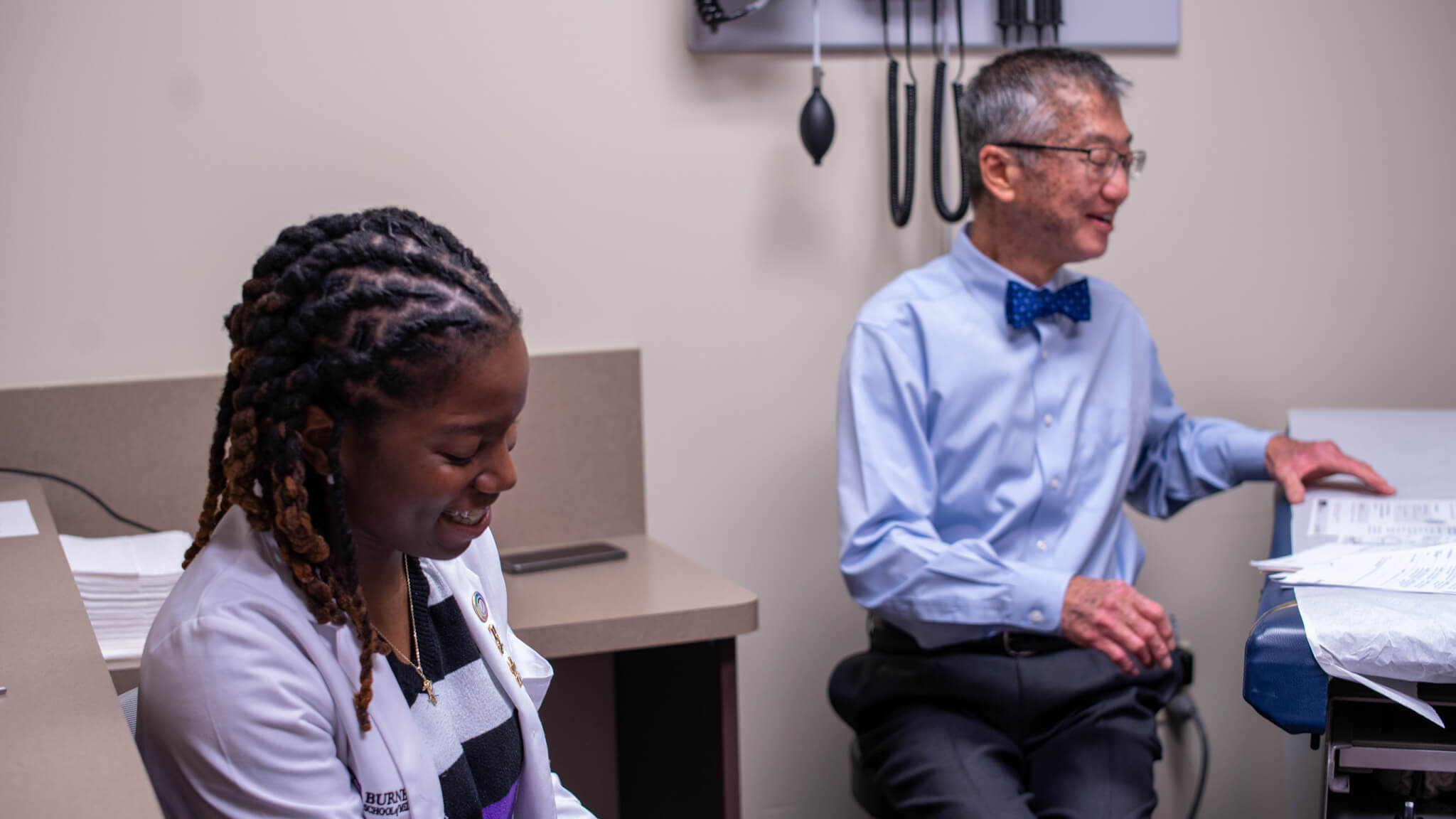
Simulation and Technology
Simulation and Technology
Manikins and HoloLens
Clinical Skills sessions are paired with simulation and innovative technology in most of our sessions. This allows us to keep learners engaged and encourages a safe environment to practice new skills. We do this by incorporating activities with high-fidelity simulators, task trainers, and Holo Lenses.
Click here to learn more about our Simulation and Technology department.
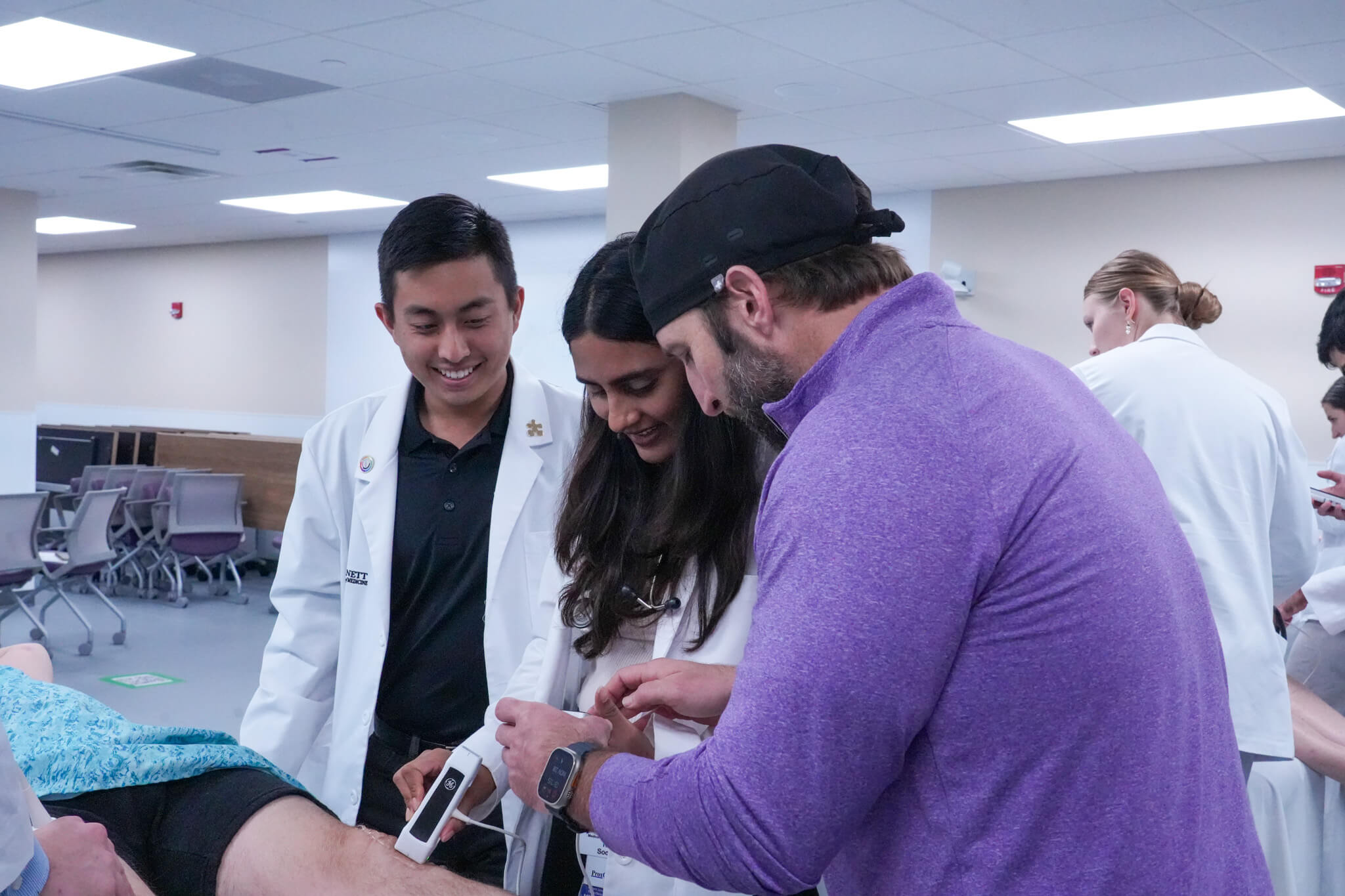
Point of Care Skills
Point of Care Skills
Ultrasound and real patient assessment
By introducing our students to best practice point of care skills such as ultrasound early in the curriculum, they will be better prepared in their clinical settings. In Clinical Skills we are able to introduce these concepts in small group settings, which allows for a more comprehensive overview. Additionally, a thorough and standardized curriculum surrounding history taking and physical exam skills prepares students to begin diagnosing and prescribing treatment plans.

